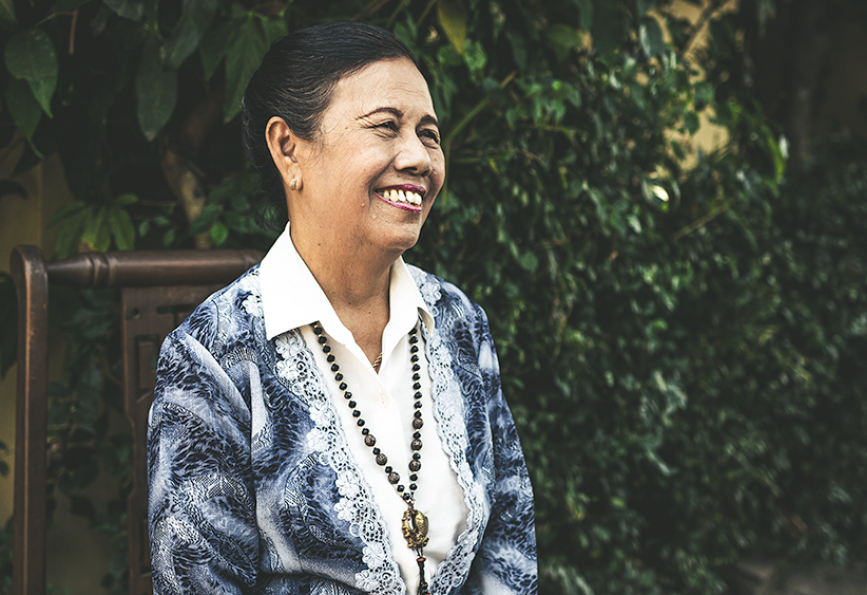
Published date: 10 Nov 2019
“It was easy for women to adjust and start supporting World Mosquito Program activities. We were able to explain the benefits of the program to different groups with different levels of understanding,” she said.
Community service is still important today, and now the World Mosquito Program has released Wolbachia mosquitoes locally, there is another way of reducing the transmission of dengue, chikungunya, Zika and yellow fever.
“Although it has been quite a long time, there haven’t been any victims of dengue fever in this region,” said Erlin.
The Wolbachia method is designed to deliver improved health outcomes for all members of a community including women, men, girls and boys. In this respect, it is a truly egalitarian public health response, providing equal protection from disease without reference to a person’s gender, age, wealth, or any other characteristic.
However, globally, dengue and Zika disproportionally affect children and women, who also typically shoulder the burden of care of family members. The World Mosquito Program has buoyed the women of Kricak.
At first, the Wolbachia mosquitoes were an unknown and there were lots of questions. But once the program was explained through community engagement, people welcomed the mosquitoes and their ability to reduce the transmission of dengue and other mosquito-borne diseases.
“There used to be lots of victims of dengue fever and some died. Many patients were hospitalised for a long time. In Kricak, we wanted to find a solution and reduce the number of dengue sufferers,” she said.
Women in Kricak and other Indonesian communities tend to be the ones who carry out community service activities like draining pooled water from containers once a week to destroy mosquito breeding sites. In the past, this has been the main way of reducing the incidence of mosquito-borne diseases.
Community service can also be a means of empowerment – women are the ones who check for pooled water, and count and report the number of mosquito larvae so that the population density can be evaluated. Women participate in the meetings, educate themselves and take their knowledge into the community. As head of a core team of the PKK (Family Welfare Program), it was Erlin’s role to encourage women’s participation in community service.
Learn more about our work in Indonesia.

